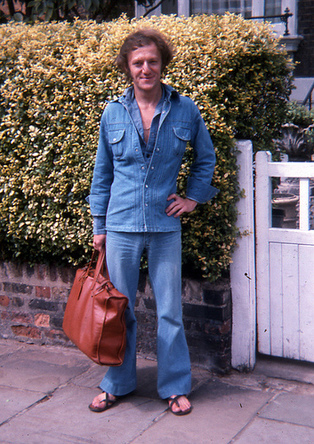
01/30/2015
Professor Yanci - Voice
The experience of last semester’s voice class allowed me the realization that there is no separation between the body and the voice; that the voice is a singular and whole expression which comes as much from the toe as it does from the voice box. We have talked about the idea of our body as ‘the instrument’, and as something of which the limitations and full range abilities of what it can do must be explored, challenged, and discovered. I can say that my voice has more range, more musicality, and more flexibility than it ever has before; this produces also a confidence of control which allows the widest possibilities in service of the words of a script or a song. Only this afternoon, I was speaking with a friend, a singer (who has been on American Idol) who made an astonishing and unsolicited claim. After an evening of karaoke, he remarked, “Tom, I know you perform and I know you often hint at singing, but you can really sing.” I am not a singer by profession and consider myself, with regard to singing, a hobbyist at best. So to hear this tells me two things: 1.) My voice has markedly improved from the work we have learned in semester one, and 2.) I have a long way to go so that I, myself, realize that I am a good singer.
What I hope to explore and achieve in Voice II is to broaden my self-awareness, to put into harmony that which I am doing, and my perception of what I am doing, with the voice. Most importantly, I wish to ‘get myself out of my way’. I do not want to operate under preconceived notions of what I should sound like nor how I should act in any given piece. I want to operate from a confident and pure expression but in a way that is not only surprising and authentic, but which is also repeatable in terms of quality. I call this unique consistency. I would also like to bring this understanding to my everyday interactions. Whether acting on a stage or having a casual conversation over a cup of coffee, there is no reason to not have the full freedom and availability of my expressive body/voice when communicating. I am specifically looking forward to exploring the voice/body work in classical works. More often than not, I see the putting on of a classical ‘voice’ which not only removes authenticity, it also dilutes and dulls the language. Without bringing the ‘self’ into the work, authenticity cannot truly be conveyed. It is said the greatest actors are not those who become another, but rather are those who can shave away those expansive parts of themselves that are not the character. As metaphor, I offer the idea which I have heard that one should not attempt to cry in a sad scene. Why? Most people who are sad are not trying to cry, they are trying to not cry. In a scene where there is a drunk person, we as actors should not portray what we think of as ‘drunk’. We play the intention, not the action. A drunk person is not trying to act drunk, they are trying—against their inebriation—to act sober. So to play the truth of a character, to play the intention, and to have that intention manifest in the body/voice such that a truthful and interesting story is being told—to me that is the highest ideal.
The work has already brought me a new awareness of possibility, the realization that the work never ends, and an understanding that the body and the voice are a singular articulation of each moment, from moment-to-moment. My other humble desire from this work is to constantly renew my passion for the craft, and to ensure that my ‘vocation is my vacation’; or better put, that the work, even the hardest of all possible work, is enamored with rich adventure, exploration, and enjoyment for my audience and myself.
 RSS Feed
RSS Feed
